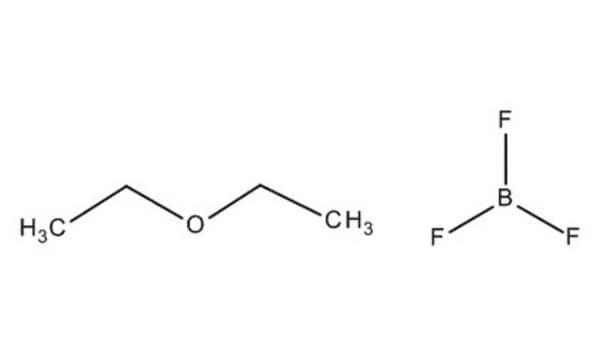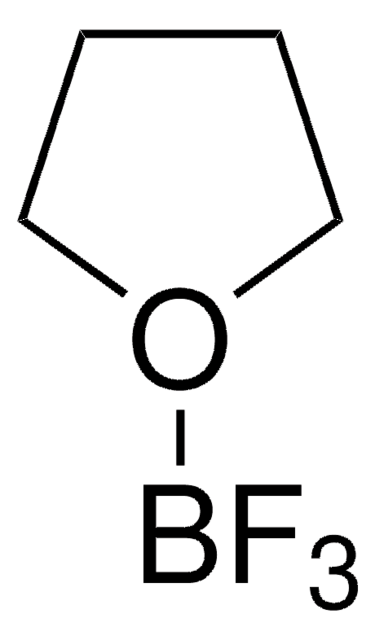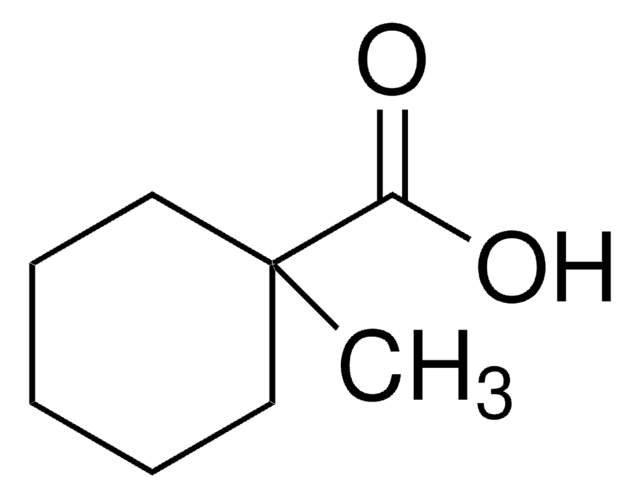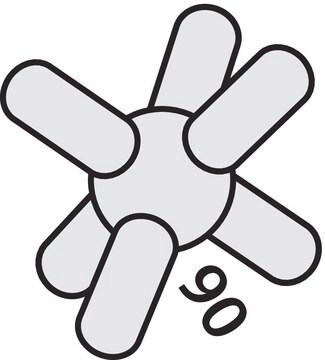175501
Boron trifluoride diethyl etherate
for synthesis
Synonym(s):
Boron trifluoride ethyl etherate
About This Item
Recommended Products
grade
for synthesis
Quality Level
vapor density
4.9 (vs air)
vapor pressure
4.2 mmHg ( 20 °C)
form
liquid
expl. lim.
36 %
reaction suitability
core: boron
reagent type: Lewis acid
reagent type: catalyst
refractive index
n20/D 1.344 (lit.)
bp
126-129 °C (lit.)
mp
−58 °C (lit.)
density
1.15 g/mL (lit.)
functional group
ether
storage temp.
2-8°C
SMILES string
CC[O+](CC)[B-](F)(F)F
InChI
1S/C4H10BF3O/c1-3-9(4-2)5(6,7)8/h3-4H2,1-2H3
InChI key
MZTVMRUDEFSYGQ-UHFFFAOYSA-N
Looking for similar products? Visit Product Comparison Guide
Related Categories
General description
Application
Packaging
Legal Information
related product
Signal Word
Danger
Hazard Statements
Precautionary Statements
Hazard Classifications
Acute Tox. 4 Inhalation - Acute Tox. 4 Oral - Eye Dam. 1 - Flam. Liq. 3 - Skin Corr. 1B - STOT RE 1 Inhalation
Target Organs
Kidney
Storage Class Code
3 - Flammable liquids
WGK
WGK 1
Flash Point(F)
137.3 °F - closed cup
Flash Point(C)
58.5 °C - closed cup
Personal Protective Equipment
Choose from one of the most recent versions:
Already Own This Product?
Find documentation for the products that you have recently purchased in the Document Library.
Customers Also Viewed
Our team of scientists has experience in all areas of research including Life Science, Material Science, Chemical Synthesis, Chromatography, Analytical and many others.
Contact Technical Service














